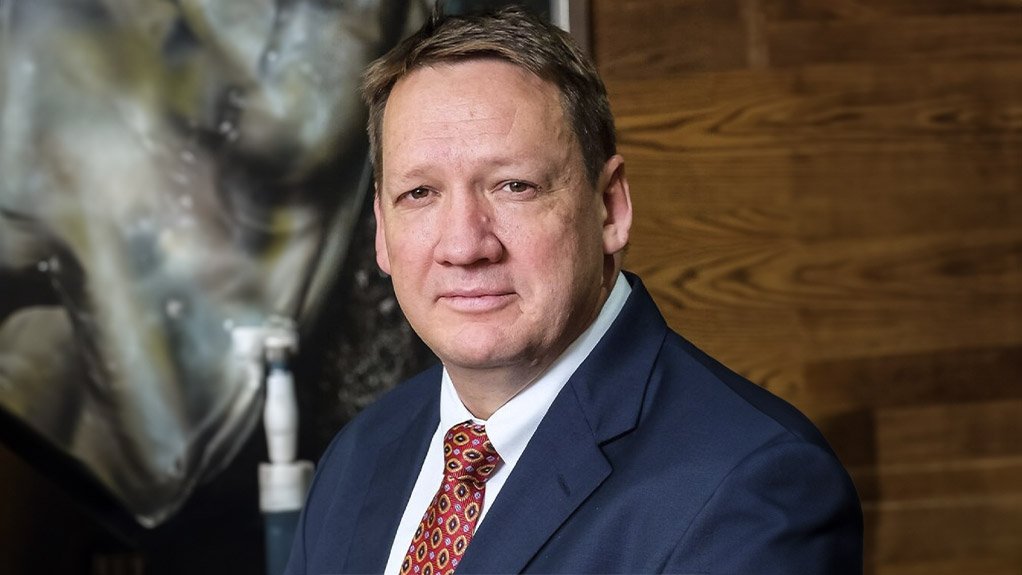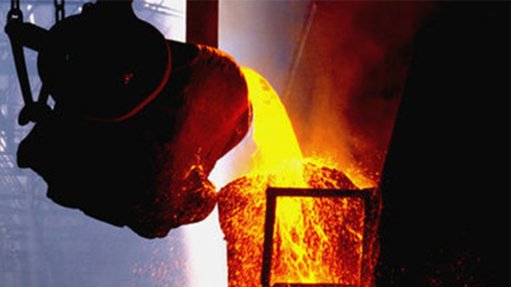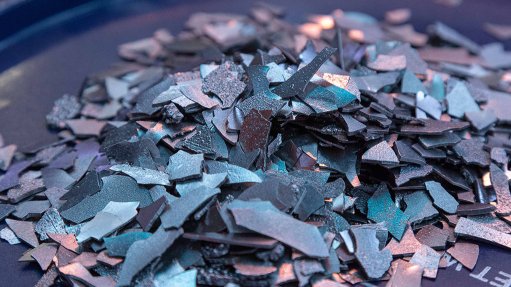Mining Indaba 2024 – Interoperability key to achieving sustainability in mining says Schneider Electric
This article has been supplied.
Building operational efficiency and resiliency to address volatility across their value chain will be prioritised by the mining companies of the future. Companies that are ill equipped to address internal volatility will be less likely or able to address an increasingly volatile external market.
Operational efficiency and resilience built through increased interoperability across power, process and digitisation will, in turn, be the initial building blocks for establishing truly sustainable operations.
This is the message from global energy management and automation leader, Schneider Electric at this year’s African Mining Indaba, held at the Cape Town International Convention Centre (CTICC) in Cape Town, South Africa.
Rob Moffitt, President of the Mining, Minerals and Metals industries at Schneider Electric says: “We are living in a period of digital and technological transformation where the way materials and services are produced, procured, delivered, and consumed is increasingly driven by the need to be more sustainable, more efficient, more agile and more resilient. Achieving sustainable operations is one of the most important challenges our industries have ever faced.
“Sustainable operations are increasingly viewed as a source of potential competitive advantage and can also have a positive impact on a company’s valuation. Similarly, those company’s lagging on this issue could increasingly be exposed to negative shareholder sentiment, lower employee morale and increased stakeholder activism.
“Resilience is a key concern in the mining sector where challenges such as access to sufficient and reliable power continues to impact operations. At Schneider Electric, we have built the capability to provide key insights to our customers through our consultancy practices across sustainability, process power, and cybersecurity across the full project lifecycle including Design, Build, Operate and Optimise,” adds Moffitt.
The three interoperable pillars
Schneider Electric’s approach to sustainability revolves around three pillars which is referred to as the sustainability triad: automation, electrification, and digitisation.
EcoStruxure Power and Process is the company’s IoT-enabled, open architecture platform that transforms information collected from across customers’ full value chain into actionable wisdom for transparent and optimised end-to-end operation.
“Industrial sustainability is achieved through the interplay of software, automation, and energy and hence our reference to the sustainability triad. Some organisations we have worked with - who have converged process performance and electrical power consumption into a single overview - are experiencing up to 20% Capex reduction, a 15% decrease in downtime, and a 7% to 12% reduction in their CO2 emissions,” explains Moffitt.
“The reasons for this become obvious as sustainability forces an organisation to be agile and innovative. A drive towards industrial sustainability means highly optimised operational efficiency, smart energy consumption, and almost zero waste.”
Looking at the first key element, automation, Moffitt further elaborates that it makes processes efficient, safe and resilient. “Closed, proprietary industrial automation technology is holding the industry back from realising the full promise of the Fourth Industrial Revolution. Universal automation, on the other hand, is the world of ‘plug and produce’ automation software components that share a common runtime based on the IEC61499 standard, making them interoperable and portable, regardless of brand. “
“Because we believe in the collaborative approach of universal automation, Schneider Electric has launched its own universal automation offer. EcoStruxure Automation Expert is a new category of software-centric industrial automation transforming the industry. And we are also a founding member of UniversalAutomation.org, the independent, not-for-profit association managing the reference implementation of an industrial automation shared source runtime.”
The second key element is electrification as it makes energy green and sustainable. Electricity is the most efficient form of energy (proven to be three-to-five times more efficient than other sources) and it is the best vector for decarbonisation.
“There has been a rapidly increasing portion of power being generated by renewable sources including hydro, geothermal, wind and solar, all of which are available across various parts of the African continent. Electrification is therefore key in strengthening the mining sector’s license to operate and improve project economics in the coming years,” notes Moffitt.
“A two degrees Celsius or lower reduction in global temperature will require a more than doubling in power sector capacity over the next 20 years and will be truly transformational with a direct correlation on the demand for so-called ‘energy transition’ or ‘critical minerals’ our industry produces. The impact and contribution of this increased mineral demand will have a profound and significant impact across the African economy.”
The third key element is digitisation as it facilitates disruption and builds a SMART future. It makes the invisible visible, driving efficiency and eliminating energy waste.
“The industries of the future will require a digital way of thinking, where software and data play starring roles. Software-centric automation can lower operating costs, increase agility, and improve an industrial enterprise’s sustainability outlook. Machines are becoming increasingly software-centric to enable remote operation and service while also increasing performance,” explains Moffitt.
“There is increasing volatility in the market driven by multiple factors but before businesses can better respond to external events by reducing internal variabilities and building resilience, they will need to improve integration across various functions in their value chain from source to market. Integrated operations provide a single source of truth built on real-time tracking and interpretation of data. In partnership with AVEVA we have extensive experience helping our customers globally establish Unified and Remote Operating Centres (UOCs).
“Digitisation has revolutionised the way we work together, the way we live together. Stage one of digital on the Internet was about connecting people to people. The current stage is about revolutionising the way we live with our environment. It’s about connecting machine to machine, people to machines, catalysed or created by IoT which is connecting everything around us with the capacity to aggregate a lot of data in large data centres: this is what we call Big Data.
“As there is a lot of data, we have the capacity to train machines with algorithms and AI to make sense of this data. So, digital will massively disrupt, and is already massively disrupting, the cost point, the time of implementation and notions of efficiency and sustainability. “
Schneider Electric assists customers and partners to leverage software-centric automation through:
1. EcoStruxure, its IoT-enabled, cyber-secure, open architecture and platform for industrial automation and energy management,
2. Strong agnostic software portfolio that includes modular IIoT applications,
3. Partnerships with world-leading independent software companies, including the company’s strategic partner AVEVA.
Schneider Electric has also embarked on its own sustainability journey more than 15 years ago and in 2021 already the company’s milestones included:
- 51 of Schneider Electric’s own facilities globally are net zero sites.
- 80% renewable energy used in facilities.
- Reduced energy consumption by 35% and water consumption by 30%.
- Over 206 of Schneider Electric’s sites send zero waste to landfill.
- Focus on safety has seen an 88% reduction in medical incidence rates since 2010
“We have received multiple global accolades and awards over the years for our achievements on sustainability across our own operations and we are committed by 2030 towards a climate positive world within the 1.5-degree scenario validated by science-based targets.
“Our ability to therefore work with our customers and partners by helping them design and implement their own efficiency, resilience and sustainability programmes is validated by us having undertaken, tested and proven our solutions internally as well as across multiple industries and sectors globally,” concludes Moffitt.
Article Enquiry
Email Article
Save Article
Feedback
To advertise email advertising@creamermedia.co.za or click here
Announcements
What's On
Subscribe to improve your user experience...
Option 1 (equivalent of R125 a month):
Receive a weekly copy of Creamer Media's Engineering News & Mining Weekly magazine
(print copy for those in South Africa and e-magazine for those outside of South Africa)
Receive daily email newsletters
Access to full search results
Access archive of magazine back copies
Access to Projects in Progress
Access to ONE Research Report of your choice in PDF format
Option 2 (equivalent of R375 a month):
All benefits from Option 1
PLUS
Access to Creamer Media's Research Channel Africa for ALL Research Reports, in PDF format, on various industrial and mining sectors
including Electricity; Water; Energy Transition; Hydrogen; Roads, Rail and Ports; Coal; Gold; Platinum; Battery Metals; etc.
Already a subscriber?
Forgotten your password?
Receive weekly copy of Creamer Media's Engineering News & Mining Weekly magazine (print copy for those in South Africa and e-magazine for those outside of South Africa)
➕
Recieve daily email newsletters
➕
Access to full search results
➕
Access archive of magazine back copies
➕
Access to Projects in Progress
➕
Access to ONE Research Report of your choice in PDF format
RESEARCH CHANNEL AFRICA
R4500 (equivalent of R375 a month)
SUBSCRIBEAll benefits from Option 1
➕
Access to Creamer Media's Research Channel Africa for ALL Research Reports on various industrial and mining sectors, in PDF format, including on:
Electricity
➕
Water
➕
Energy Transition
➕
Hydrogen
➕
Roads, Rail and Ports
➕
Coal
➕
Gold
➕
Platinum
➕
Battery Metals
➕
etc.
Receive all benefits from Option 1 or Option 2 delivered to numerous people at your company
➕
Multiple User names and Passwords for simultaneous log-ins
➕
Intranet integration access to all in your organisation





















